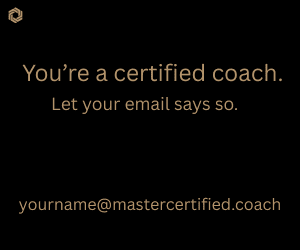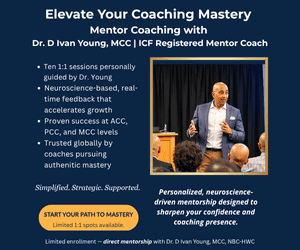One of the most effective public relations tools that coaches can utilize in their business is an organized and succinct media kit. This tool can help you build a relationship with reporters, earn media coverage and accomplish promotional goals as a coach. This includes raising awareness of the industry, demonstrating your expertise, or providing details about a big announcement. When used strategically, providing a media kit to reporters can help you distinguish yourself in the coaching industry.
A media kit is a set of resources containing information about your expertise, the coaching industry, or a notable announcement or development. This is a popular tool for events or product launches because it offers the most pertinent and important information for journalists to reference when writing their story, all in one convenient package.
You can also use a media kit to offer expansive background for story ideas and interview opportunities.
What Belongs in a Media Kit?
Understanding the functions of a media kit is important, but it is even more essential to know what to include in the kit. This is an opportunity to show members of the media what sets you apart, give them a glimpse inside your business and demonstrate your expertise. Be sure to customize your messaging in all media kit materials based on your goals, and keep your kit fresh with interesting content and timely details.
There are a few common foundational elements to include to make sure your media kit is as effective as possible:
- Contact details: Include your contact information near the top so it is easy to find if the reporter wants to get in touch—that is your goal, after all!
- Coach bio: Provide a bio of yourself and a brief description of your company to help the journalist share interesting and relevant information. Try to keep it brief.
- A media release: Include a media release that is relevant to the journalist’s story. For example, if the journalist is covering an innovative new service, you can provide additional information in a release format that provides insights on the reasons you added it, and its impact. Be sure to include one or two direct quotes from you that they can use in their story.
- Images: When appropriate, include high-resolution images in your media kit that journalists can utilize with their articles. If you are available for interviews, include a professional headshot.
- Case study samples: With your client’s permission, you could also provide case studies that details the specifics of how you helped a client., This gives you an opportunity to showcase real world issues and illustrate the impact of your coaching.
- Recent news coverage and social following: If you have recently appeared in the news or other publications, be sure to mention this to further solidify your expertise and prove that you are a reliable source. Journalists prefer speaking to experts that understand the media landscape. If you can prove to them that you are prepared, you will have a better chance of catching their attention. This is also a great opportunity to insert your social media handle and the consistent content that you regularly share with the world.
- Share your credentials: Share your ICF Credential and/or ICF Membership in your media kit. You worked hard to earn it, and it signals your professionalism and adherence to the industry’s gold standard for coaching best practices and ethics.
When and Where Do You Send a Media Kit?
In the past, a media kit was presented as a meticulously packaged set of printed materials in a folder that was mailed to journalists or handed to them at an event. Thanks to the rise of digital options, most media kits are now shared in a PDF format and can be downloaded from your website or attached to an email.
Just as you would consider when and where to send a press release or media pitch, think critically about where and when you send a media kit. Before sending it out to everyone on your media list, spend time researching outlets and journalists that would be interested in using your expertise as a resource for a story.
It is also appropriate to use a media kit as a follow up item after an interview to keep your correspondence going with the journalist and have your story stay top of mind.
Becoming a Credible Resource for Media
As the coaching industry continues to grow and evolve, your voice as a coaching expert is relevant. Remember: media kits are a great opportunity to showcase the power of coaching by sharing relevant perspectives, studies and testimonials about how coaching has helped so many people.
By creating a media kit that is uniquely your own, you can stand out as a professional and make a mark as a credible coaching industry leader.
Disclaimer
The views and opinions expressed in guest posts featured on this blog are those of the author and do not necessarily reflect the opinions and views of the International Coach Federation (ICF). The publication of a guest post on the ICF Blog does not equate to an ICF endorsement or guarantee of the products or services provided by the author.
Additionally, for the purpose of full disclosure and as a disclaimer of liability, this content was possibly generated using the assistance of an AI program. Its contents, either in whole or in part, have been reviewed and revised by a human. Nevertheless, the reader/user is responsible for verifying the information presented and should not rely upon this article or post as providing any specific professional advice or counsel. Its contents are provided “as is,” and ICF makes no representations or warranties as to its accuracy or completeness and to the fullest extent permitted by applicable law specifically disclaims any and all liability for any damages or injuries resulting from use of or reliance thereupon.
Authors
Post Type
Blog
Audience Type
Experienced Coaches, External Coaches, ICF Chapter Leaders, Internal Coaches, Mentor Coaches, New Coaches, Professional Coaches, Team and Group Coaches
Topic
Business Development
Related Posts
The Executive Coaching Blueprint: Positioning, Pricing, and Performance
Transitioning from corporate to coach can feel like uncharted territory for many…
Why Coaches Need Other Coaches
Setting the Foundation When you’re learning about the field of coaching while…
Expanding Coaching Possibilities With the Coaching Spectrum Framework™
When I discovered coaching 14 years into my career as an occupational…







